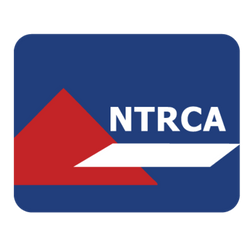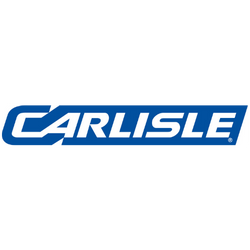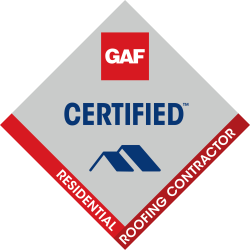Will homeowners cover a new roof?
If you’re a homeowner, there is a chance that at some point, you’ll need either roof repair or new roof installation. Getting a roof installation is not a cheap job. This is why many homeowners hope their roof holds out until they can file a claim for getting a roof installation on their homeowner’s insurance.

Well, it depends on several factors, with the first one being your homeowner’s insurance policy. New roof installation is something that you need to review your policy with your agent to see what it covers and what it doesn’t cover. The majority of homeowner’s insurance policies will cover new roof installation for a replacement if the existing roof has been damaged by an act of nature or abrupt accidental event.
When most homeowner’s insurance policies don’t cover repair or new roof installation jobs is it the roof has been neglected. So, if the roof was in a state of deterioration before and begins leaking in a rainstorm, they will not pay for a new roof installation. Basic aging, wear-and-tear, and neglect negate any roof install coverage.
How can I afford a new roof?
Your roof leaks and repairing it is not an option, according to the insurance adjuster and several contractors that inspected the damage. You’re looking at a new roof installation for around $8,000 to $10,000. Along with the insurance adjuster telling you that repairs weren’t possible, they also advised you that your homeowner’s insurance was going to pay for the roof installation, either.
If you’re like most Americans, you don’t have that much in savings or on a credit card. So, what can you do? Here are five ideas that could help you pay for that new roof installation, the first one though, is already out of the equation, but for the sake of the article, we’ve listed the possibility:
1. Homeowner’s Insurance
A new roof installation because of damage sustained by natural forces may be paid for by your homeowner’s insurance. Most insurance policies pay for roof installation because of damage by fire, storm, or theft. However, if the insurance adjuster decides that your roof is old or the leak is from normal wear and tear, they will decline your claim. It is this reason why you should review your homeowner’s insurance policy and discuss the matter with your agent BEFORE you need to file a claim.
2. Payment Plan
Some roofing contractors have payment plans, allowing you to make a payment over a set number of months. There may be a required down payment, and the interest rate may be higher than you would like, but it is one option to getting your new roof installation done. Some roofing companies may have you sign over a lien on your home, meaning if you don’t make your payments as agreed upon, they can take your home.
3. FHA Title I Loan
A Title I loan is backed by the FHA (Federal Housing Administration) that will pay for improvements to home and property like roof replacement. You may be able to borrow as much as $25,000 and have twenty years to repay the loan. Like with a roofing contractor, any Title I loan over $7,500 will require being secured by your mortgage or deed of trust. Again, this means if you don’t make the payments as agreed, the federal government can take your house. No, you don’t go to the White House to take a loan. You go to your bank or any bank that offers Title I loans, and they will have their loan requirements you must meet, and they have their interest rates. Just like you shop around for a roofing contractor, shop around for a loan to get the best interest rate.
4. Home Equity
If you have enough equity built up, you may be able to take a home equity loan. This option is a cost-effective way to pay for a new roof installation, and you may be able to get this with the same bank that has your mortgage note. Like any loan, though, there are downsides with a home equity loan. Experts recommend borrowing as little as you have to make it easier to repay so that you don’t fall delinquent, and you’re your home.
5. Personal Loans
What if the options we listed aren’t working for you to pay for your new roof installation? Another option is to take a personal loan from the bank, credit union, or any institute that offers personal loans. These don’t require collateral, like your home, so no worry about losing your home because of late payments.
A home loan will have a shorter time to repay, so the payments are generally higher, instead of 20 years, your loan could be a five year repay. The interest rate could be astronomical, like 199%, or if you have excellent credit, you could get an interest rate of 3%.
What is the difference between re roof and new roof?
Most building codes define reroofing as RECOVERING or REPLACING an existing roof covering. A new roof installation replacement is defined as REMOVING the existing roof covering while making repairs to any damaged substrate first.
Is it OK to put new shingles over old?
With a new Roof installation process, yes, you can have the new shingles installed over the old roof if it meets the following two criteria:
- Asphalt over asphalt – do not mix materials
- Existing roof is in good shape structurally
Why get a roof installation?
Reroofing is excellent if it is possible because it will be less expensive, but the existing roof, decking, and the rafters need to be in good condition. Some minor issues, like the asphalt shingles, are wearing out, or a small leak that can be repaired easily before applying in the new roof installation. It will also depend on local building codes, in which a roofing contractor should be able to confirm this for you.

What are the Benefits of a roof installation?
There are several benefits to having a new roof installation done in place of just reroofing the existing roof.
- Energy Efficient: If the existing roof has aged to deterioration, you’ll lose your heat during the winter as hot air rises.
- Manufacturer Warranty: The existing shingles warranty is expired, and the new shingle warranty may not be honored if roof installation was over old shingles.
- Increased Health Concerns: Anyone living in the house with respiratory issues may suffer from old dampness, mildew, and mold that the old roofing holds.
- Higher ROI: A new roof installation from the rafters up will give your house a higher resale.
- New Looks: A new roof installation will give your home a new curb appeal.
Can I install a roof myself?
You can if it’s not an issue in the jurisdiction where you live. Some cities require this type of work to be performed by a certified, insured, and licensed contractor. If that isn’t an issue where you live, and you don’t have a fear of height, by all means, go for it. Read up on safety issues and make sure you use each recommendation for that.
Keep in mind with a licensed roofing contractor, and your new roof installation will have a guarantee and warranty. If you do the job yourself and there is a problem later, it will be on you, or you’ll have to hire a contractor to fix your mistake. For roof installation in Dallas and Fort Worth, TX, call 469-858-2448 today.

















